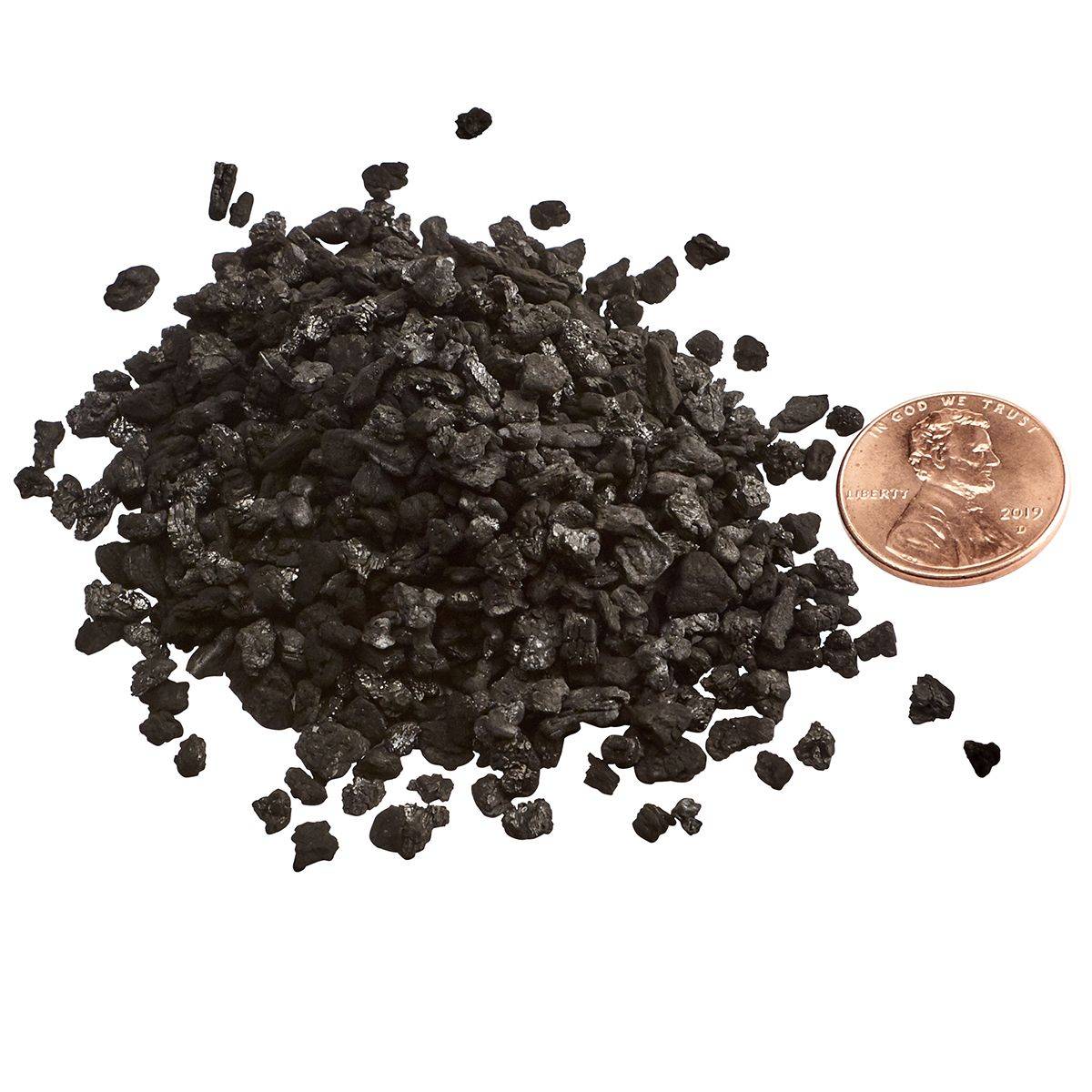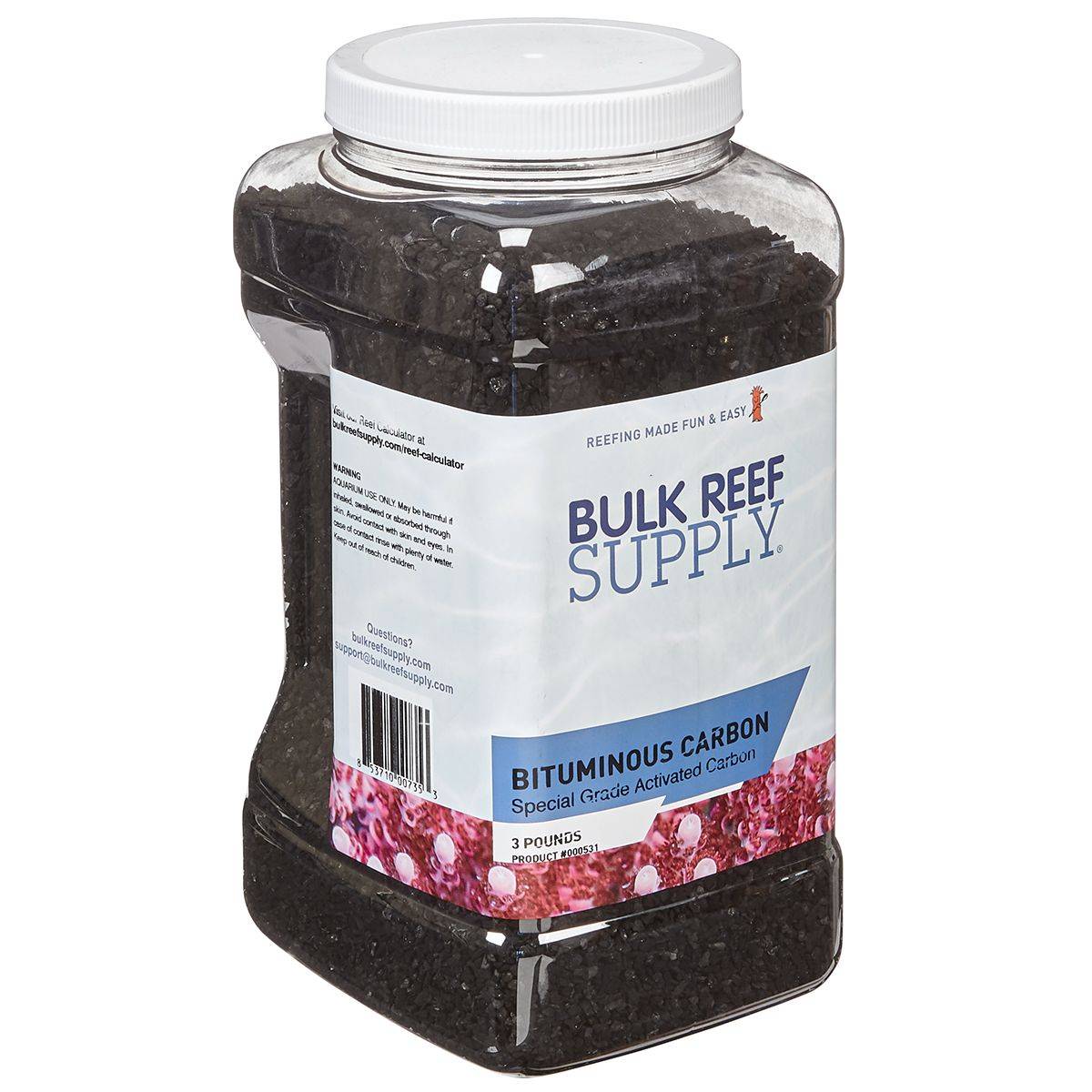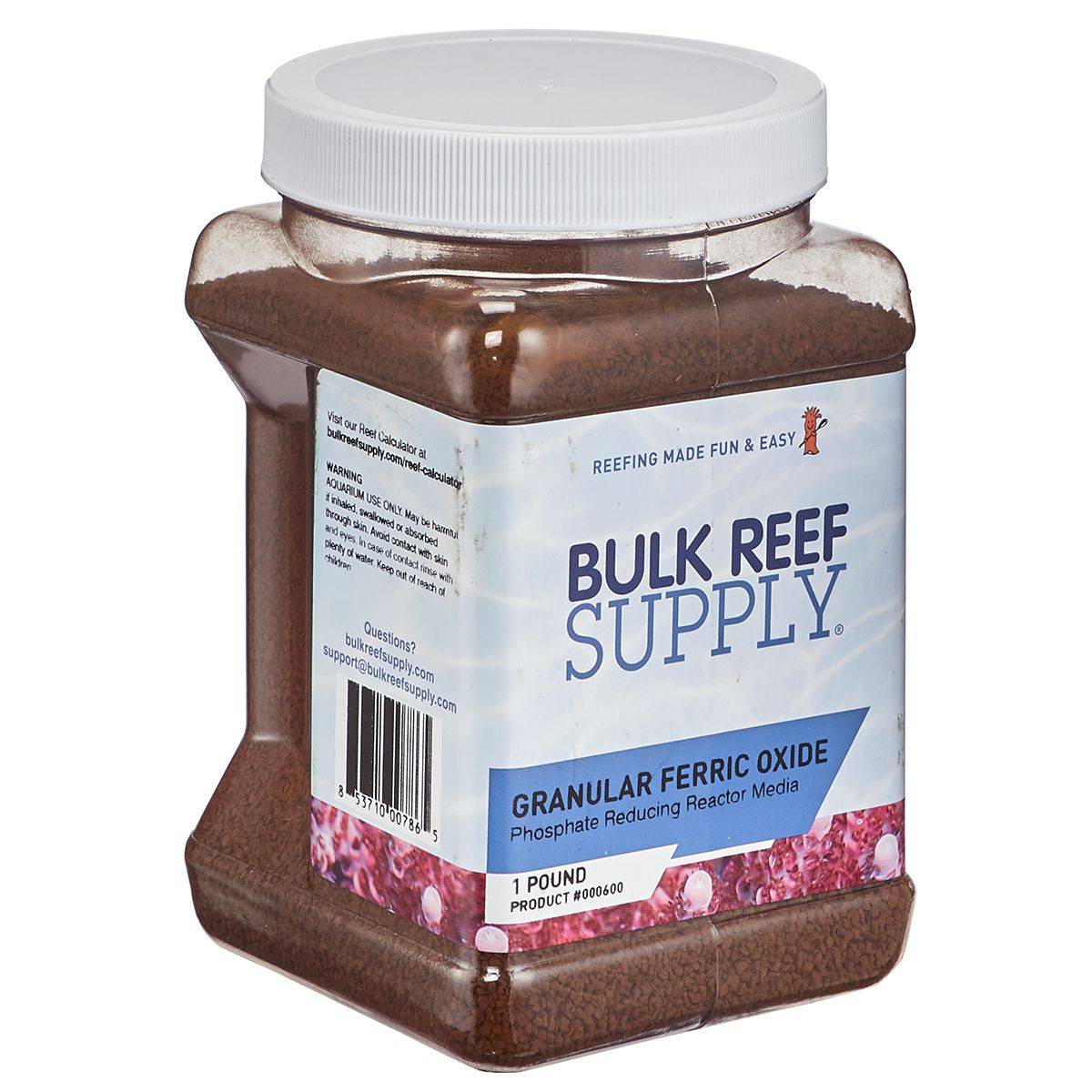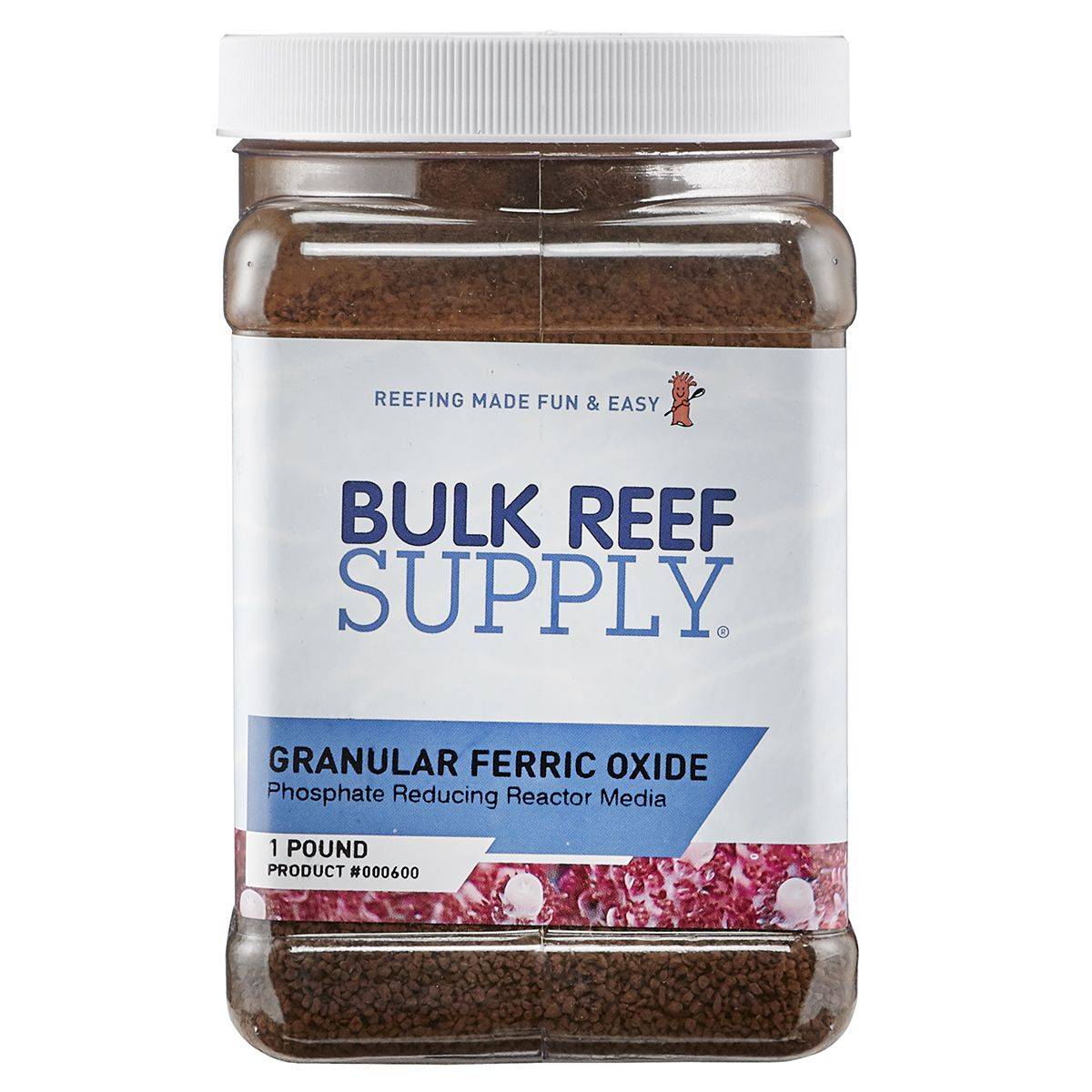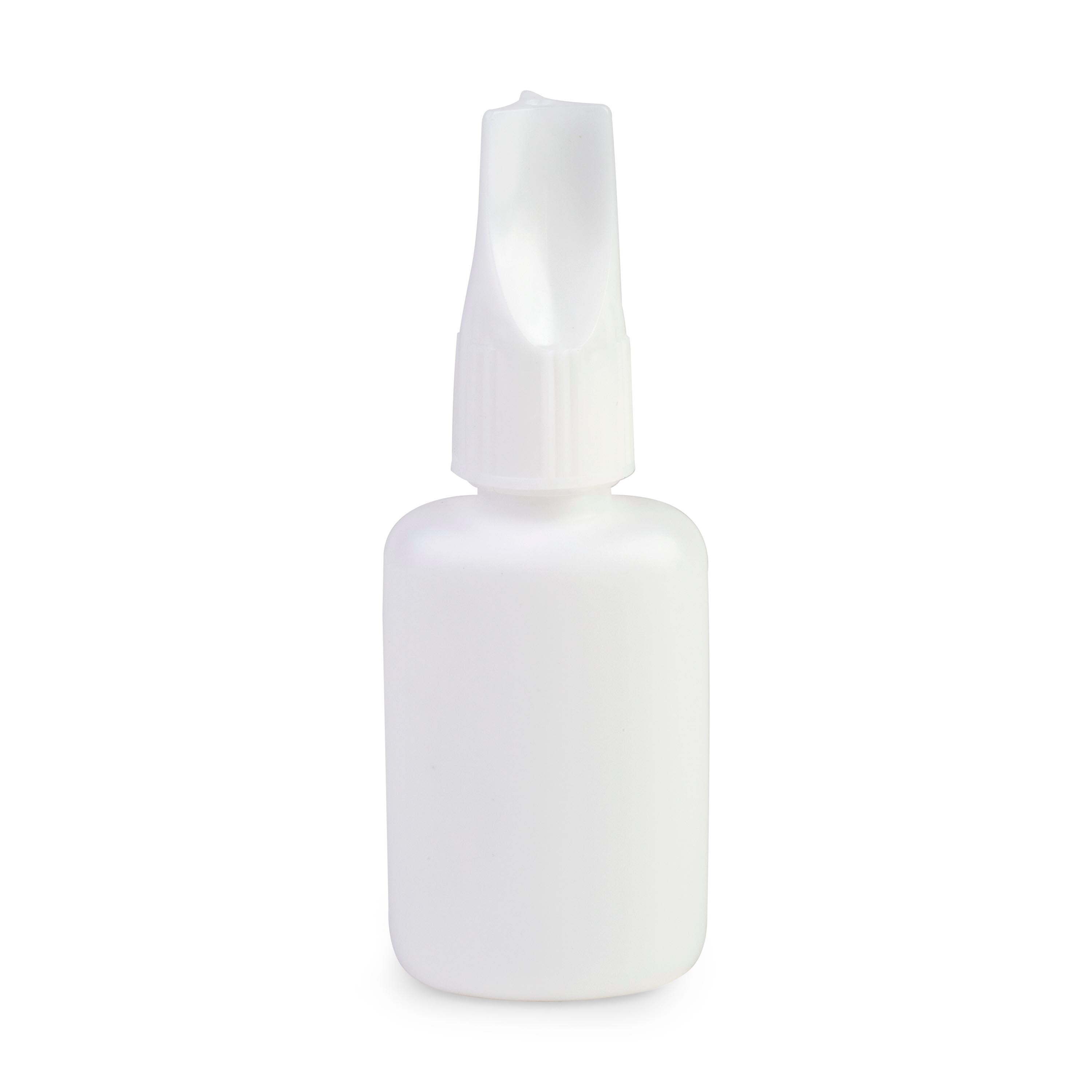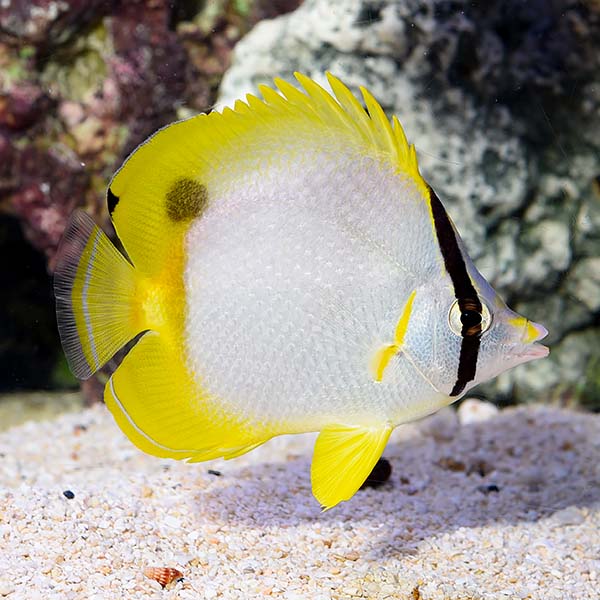
Spotfin Butterfly (Chaetodon ocellatus)
Max Size: 8 inches
Diet: Carnivore
Temperament: Peaceful
Reef Compatible: No
Minimum Tank Size: 125 gallons
The Spotfin Reef Butterfly fish is characterized by its vibrant appearance, low-maintenance nature, and distinct features. Its name originates from the small black spot situated at the tip of its dorsal fin. Fully grown adults display a white hue, accompanied by striking yellow pelvic and caudal fins, along with a slender yellow stripe extending from the gills to the base of the pectoral fins. A bold vertical black bar runs through the head, passing over the eye. In the case of juveniles, an additional dark spot can be observed at the anal fin's base, accompanied by a faint streak that stretches towards the small dorsal fin spot.
However, what truly sets the Spotfin Reef Butterfly apart is its nocturnal transformations. During the night, this fish undergoes astonishing changes in appearance. The once dusky smudge on its dorsal fin transforms into a broad, intense black mark, while dark bands emerge on its body. Interestingly, this fish occasionally engages in unique behaviors like swimming upside down and even squirting water like a fountain above the water's surface.
In its natural habitat, the Spotfin Reef Butterfly exhibits a calm demeanor. Typically found in shallow waters around coral reefs, it prefers solitary or paired arrangements, forming lifelong bonds with its partner. Its peak activity occurs during daylight hours, during which it may alter its coloration; however, as night falls, it seeks shelter to rest, as it becomes highly susceptible to larger predators during this time. When considering tankmates, it's important to select peaceful companions. Nonetheless, it's important to note that the Spotfin Butterfly might not be the best fit for a reef aquarium.
When it comes to sustenance, the Spotfin Reef Butterfly is a discerning carnivore that can initially pose feeding challenges. To stimulate its appetite, a diet rich in live, vitamin-fortified brine shrimp, clams, and mashed squid or shrimp is recommended. Once its eating habits are established, incorporating mysis shrimp and frozen carnivore preparations into its diet at least three times a day is advised.


